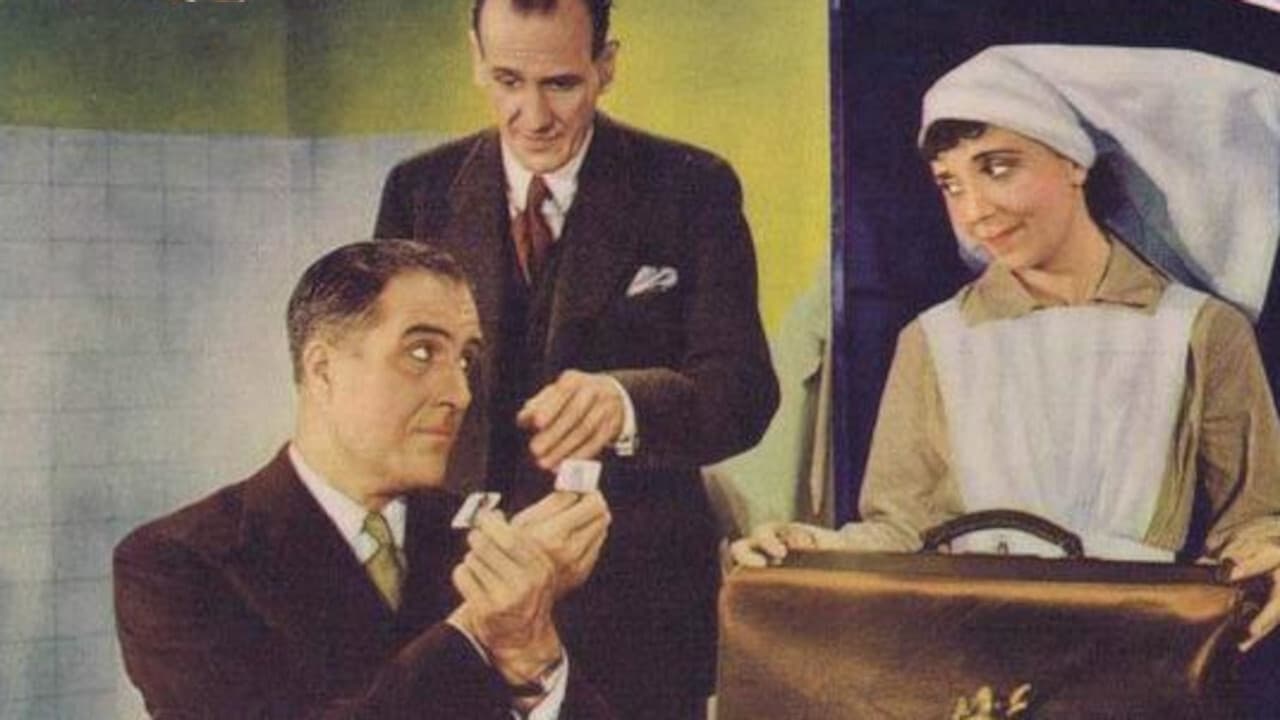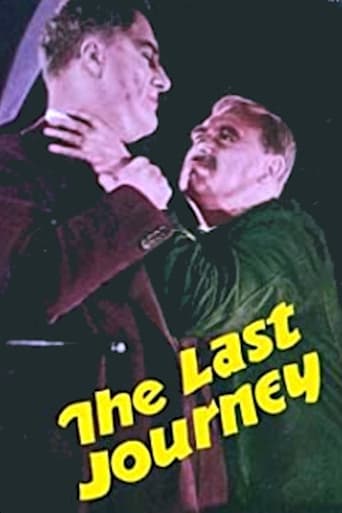Libramedi
Intense, gripping, stylish and poignant
TaryBiggBall
It was OK. I don't see why everyone loves it so much. It wasn't very smart or deep or well-directed.
Mischa Redfern
I didn’t really have many expectations going into the movie (good or bad), but I actually really enjoyed it. I really liked the characters and the banter between them.
Calum Hutton
It's a good bad... and worth a popcorn matinée. While it's easy to lament what could have been...
JohnHowardReid
Director: BERNARD VORHAUS. Screenplay: H. Fowler Mear, John Soutar. Based on an original screen story by J. Jefferson Farjeon. Photography: William Luff, Percy Strong. Supervising film editor: Jack Harris. Film editor: Lister Laurance. Art director: James A. Carter. Hair styles: Charles. Music director: W.L. Trytel. Production supervisor: John Brahm. Assistant director: James Davidson. Sound recording: Baynham Honri, Leo Wilkins. Visafone Sound System. Producer: Julius Hagen. Filmed with the full and courteous co-operation of the Great Western Railway. Cars supplied through the courtesy of Messsrs A.C. (Acedes) Cars, Ltd. A Twickenham Film Studios Production, released in the U.K. through Twickenham Film Distributors: October 1935. U.S. release through Olympic Pictures. Not copyrighted in the U.S.A. Not theatrically released in Australia. 66 minutes. SYNOPSIS: The driver of an express train suffers a breakdown. COMMENT: A definite must-see for railway buffs (in fact it would easily figure on the top ten), thanks to the wholehearted co-operation of the Great Western Railway which has produced some absolutely staggering scenes and effects. Aside from a bit of obvious under-cranking right at the very beginning of the movie, technical credits are extremely proficient. Direction and camerawork strike even a casual viewer as especially skillful. The script is serviceable enough too, though some of the players, particularly Julien Mitchell as the mad engineer, are inclined to over-do things a little. Olga Lindo also seems a bit of a pain as the overly sympathetic wife, but that's the fault of the script. Judy Gunn makes a pleasant heroine, and it's nice to see Eve Gray laying on the charm as a confidence girl.
chrismartonuk-1
The low budget British B film of the 30's is a much derided genre and conventional wisdom has it they did much to damage the image and prestige of the domestic film industry. But, as in any genre, there was scope for the occasional gem by an innovative writer and director. This is one such example. When most British films of the time - and for a long while afterwards - invariably consist of long dragging master shots, THE LAST JOURNEY is composed of rapid fire editing and quick, inventive clips that ratchet up the tension. There are occasional striking compositions through the fiery opening to the train's furnace as the deranged driver goes about his business. There are a motley group of passengers each with their own soap-opera problems. One such is Judy Gumm - a strikingly attractive British ingénue whose career promised much but went nowhere after she married a short time later. Another group of con men and woman have to deal with an inconvenient - and unconscious - detective - who turns a blind eye to them at the end and allows them to escape. There are several high tensions scenes of the engineer escaping across the roof's of the carriages and the Doctor who clambers into the cab to use psychology to calm the insane driver.This comes close to being a B British disaster movie and its helter skelter editing - no scene seems to last longer than a minute - maintains a hectic pace that leaves the viewer on the edge of his seat. It's a worthy example of how to make something out of very little and a lesson to British filmmakers everywhere. Few of the actors on display will be familiar - except for Godfey Tearle as the heroic Doctor who later crops up in ONE OF OUR AIRCRAFT IS MISSING. The extensive location shooting provides an intriguing glimpse of a lost prewar world. Two excellent books are worth mentioning. QUOTA QUICKIES by Steve Chibnall for the BFI amply demonstrates just how much wheat there was amongst the chaff of the prewar British B film - and some surprising names eg Errol Flynn - and THE UNKNOWN 30'S edited by Jeffrey Richards has a whole chapter devoted to Bernard Vorhaus.
John Howard Reid
A definite must for railway buffs (in fact it would easily figure on the top ten), thanks to the wholehearted co-operation of the Great Western Railway which has produced some absolutely staggering scenes and effects. Aside from a bit of obvious under cranking right at the very beginning of the movie, technical credits are extremely proficient. Direction and camera-work strike even a casual viewer as especially skillful. The script is serviceable enough too, though some of the players, particularly Julien Mitchell as the mad engineer, are inclined to over-do things a little. Olga Lindo is also a bit of a pain as the overly sympathetic wife, but that's the fault of the script. Judy Gunn makes a pleasant heroine, and it's nice to see Eve Gray laying on the charm as a confidence girl.
Mozjoukine
Despite the decades of subsidised film study in Britain, little is known about their pre-Korda years. Critics and thesis writers have been inhibited by the lack of plagiarisable material and the awfulness of much of what was about.The neglect of Maurice Elvey's films is the most obvious result but here is a modest English program entertainment which reverses expectations. Script and performance are less than imposing as passengers with problems accumulate but the energy is startling in the staging of the story of the demented engine driver taking the Mulchester (!) local round the curves at lethal speed, filmed air to rail, road to rail and rail to rail as the racing car, plane and goods trains run level with the speeding passenger local, in the best silent serial traditions.Rail freaks will be delighted by the documentary like coverage of procedures and equipment.Director Vorhaus developed a following when David Lean named him as mentor but most of his output is mediocre or worse. This one suggests Lean may have known something we don't.

